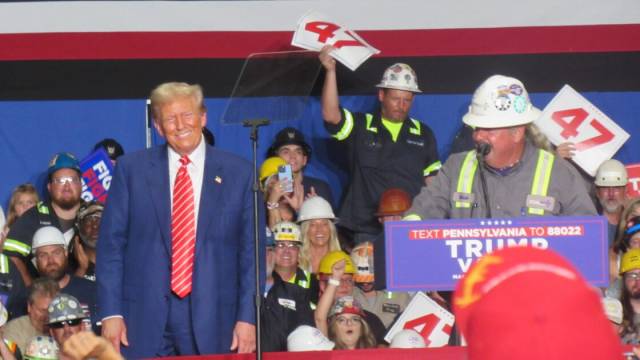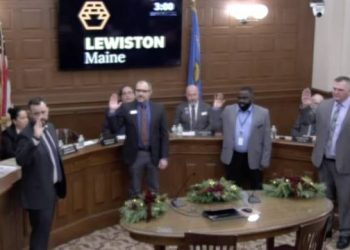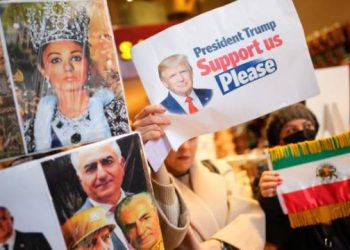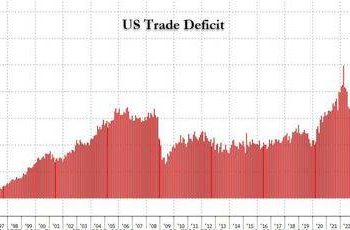President Trump with steel workers in October 2024. Trump has consistently been a champion for working men and women.
Donald Trump has transformed the American economy in significant ways that go beyond conventional policy measures.
His strategies have revitalized U.S. manufacturing and trade competitiveness through stringent tariffs while also addressing a largely overlooked issue in the labor market: the misuse of foreign work visas.
These reforms have served as a robust defense of American workers, ensuring that high-paying, skilled jobs remain available to U.S. citizens instead of being taken by cheaper foreign labor.
WATCH: Trump’s TARIFFS Are WORKING
Among Trump’s notable achievements is his effective implementation of tariffs.
Despite Democratic claims that tariffs on Chinese steel, aluminum, and other imports would harm the economy, the reality has been quite the opposite.
American industries, previously hindered by low-cost, government-subsidized foreign goods, have finally gained the space needed to thrive.
Factories that had been closed for years have reopened, leading to the creation of new jobs.
The impact has been clear: tariffs have encouraged companies to reconsider outsourcing, prompted foreign producers to negotiate fairer trade agreements, and sent a strong message that America will no longer be exploited in global markets.
Tariffs have functioned not just as a policy tool but as a declaration of economic independence.
Now, Trump has proposed an innovative policy: a $100,000 fee for H-1B visa applications.
For years, large tech companies and multinational corporations have exploited this program to undermine American workers.
By hiring foreign employees who are willing to accept significantly lower wages, these companies have increased their profits at the expense of U.S. talent.
Moreover, these workers often find themselves dependent on their employers for visa sponsorship, making them less likely to advocate for fair wages or improved working conditions.
This created an uneven playing field, where American graduates in fields like information technology found it difficult to compete in their own country.
Trump’s $100,000 application fee alters this dynamic.
If corporations genuinely believe they cannot find talent domestically, they now face a hefty cost for opting for foreign workers.
By imposing this financial burden on companies like Google and Microsoft, Trump is prioritizing American workers.
This makes outsourcing costly and encourages companies to first consider hiring from the U.S. labor force.
In combination, tariffs and visa reforms signify more than mere economic adjustments; they represent a fundamental shift in philosophy.
For decades, American workers were treated as disposable while corporations pursued cheap labor and imports.
Trump has reversed that trend.
He has placed America first in trade, labor, and industry, fostering an economy that benefits citizens rather than multinational corporations.
His policies demonstrate that safeguarding American jobs is not just feasible—it is essential for long-term prosperity.
 Telegram is where we really talk. Don't miss out!
Telegram is where we really talk. Don't miss out!









